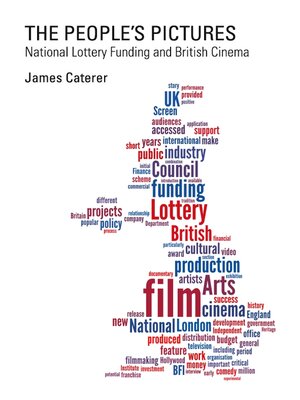
Sign up to save your library
With an OverDrive account, you can save your favorite libraries for at-a-glance information about availability. Find out more about OverDrive accounts.
Find this title in Libby, the library reading app by OverDrive.



Search for a digital library with this title
Title found at these libraries:
| Library Name | Distance |
|---|---|
| Loading... |
When John Major launched the UK's National Lottery in 1994 he christened it "the people's Lottery" and handed it to the mythical stewardship of the Everyman. But when the proceeds began to be distributed to worthy causes, including the British film industry, this populist rhetoric came under increasing strain. If Lottery funding is used to produce the type of British films which the public want to see, such as romantic comedies, then many question whether the market deserves such subsidy. Short films and low budget, experimental cinema – which often require state support – tend to go unwatched by large swathes of the Lottery ticket-buying public. This book explores the debates which were sparked by the arrival of "the people's pictures", and places them in historical context by examining their many precedents. Is public patronage a boon or a burden for filmmakers? And how do institutional cultures or political buzzwords affect the finished films? Case studies include the popular hits Billy Elliot (2000) and Shooting Fish (1997); art-house releases such as Love Is The Devil (1998) and Gallivant (1997); short films by Lynne Ramsey and David MacKenzie; and artists' film and video work by Bill Viola and Tracey Emin.







